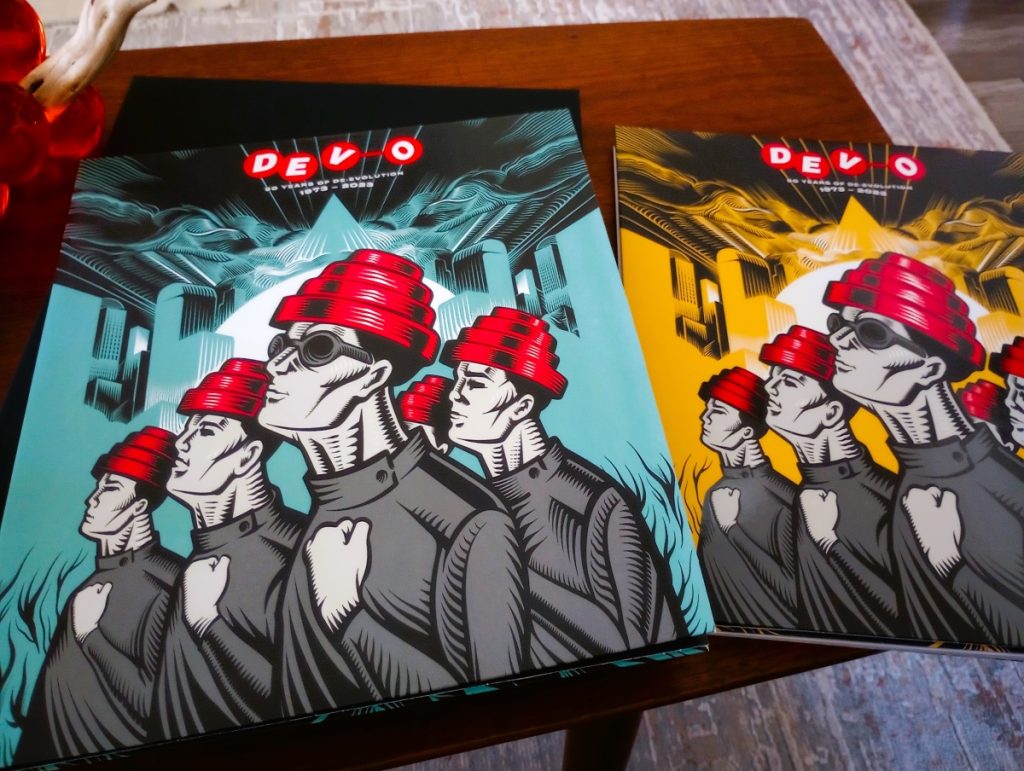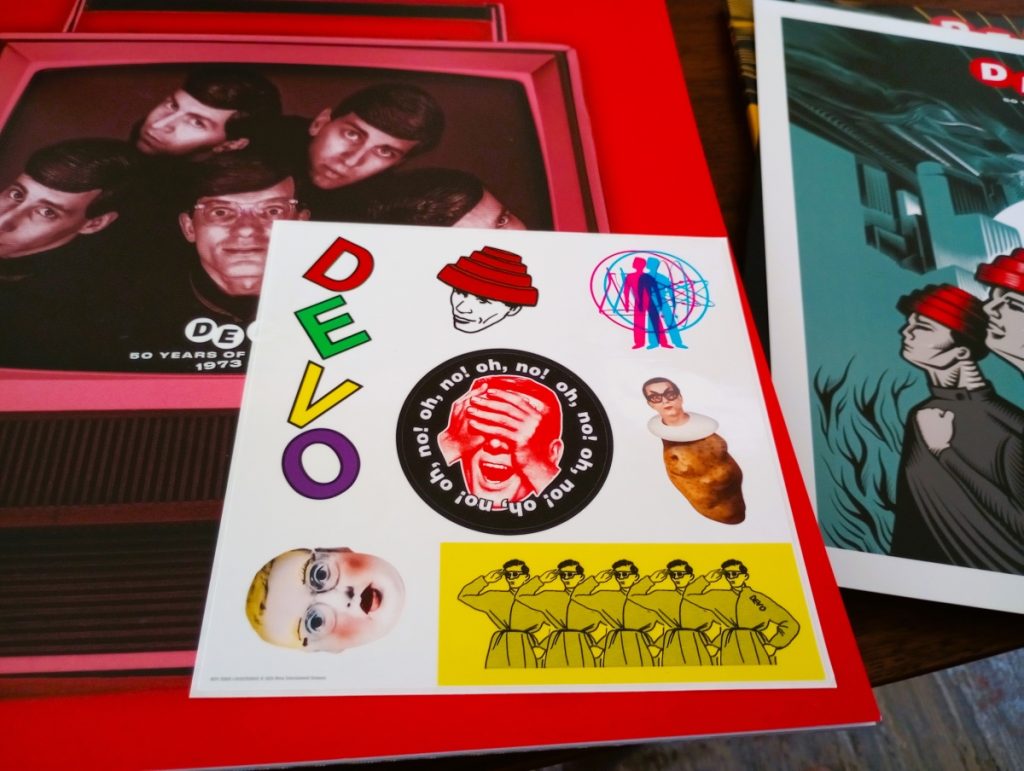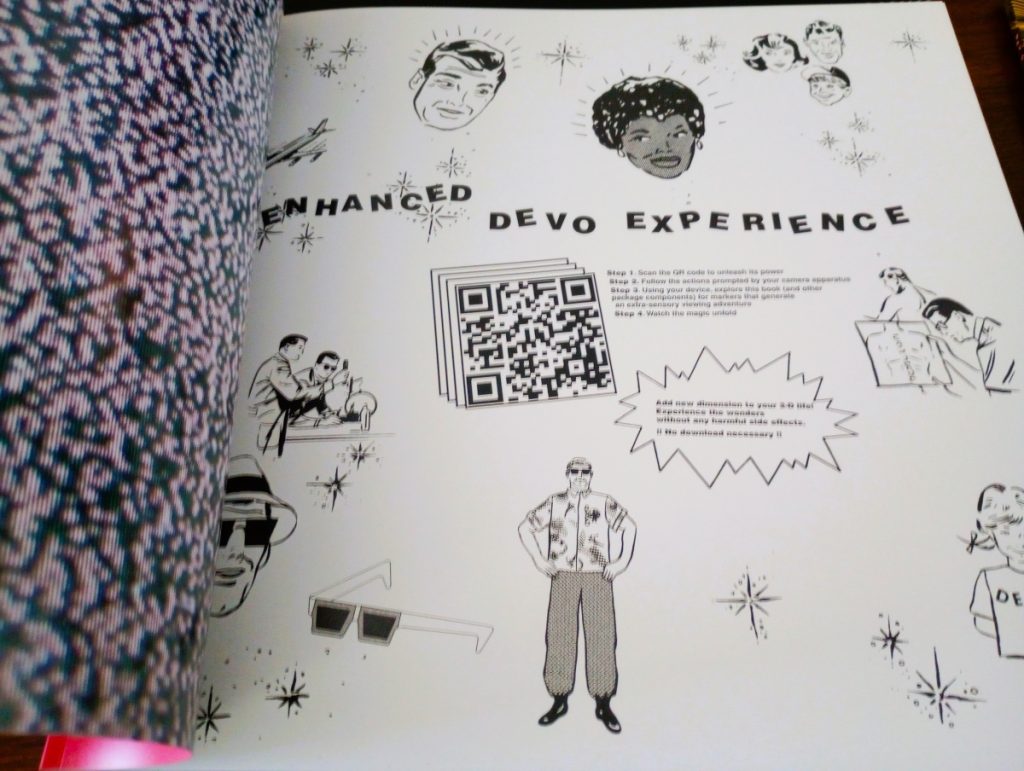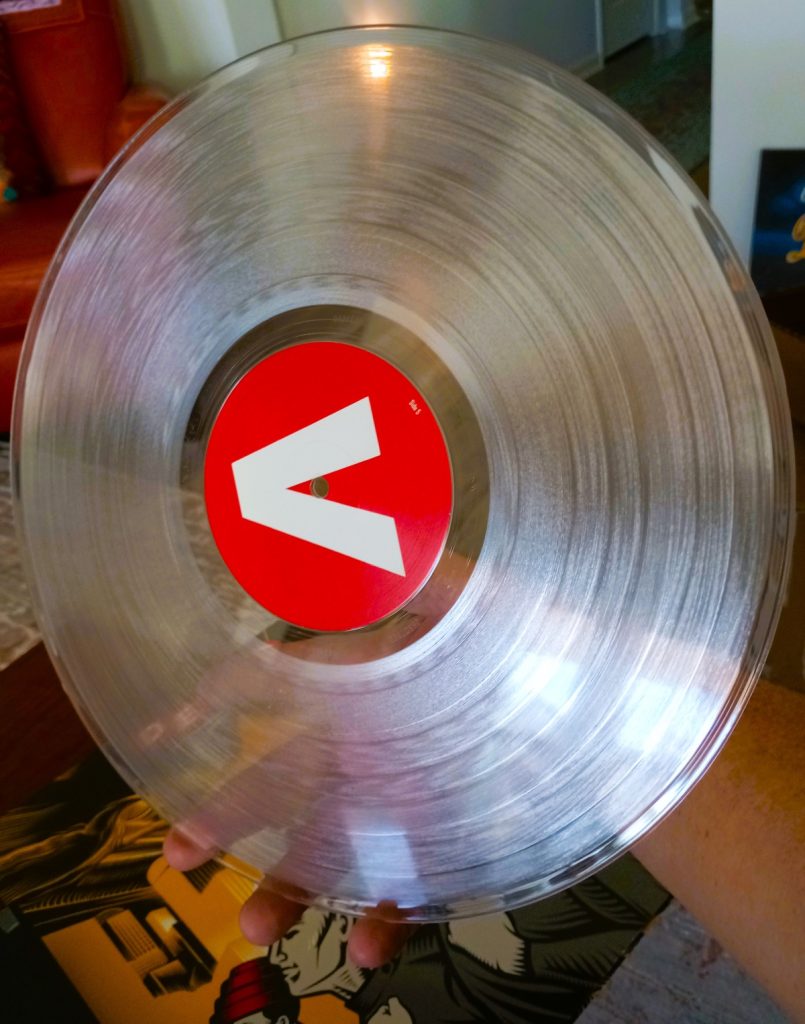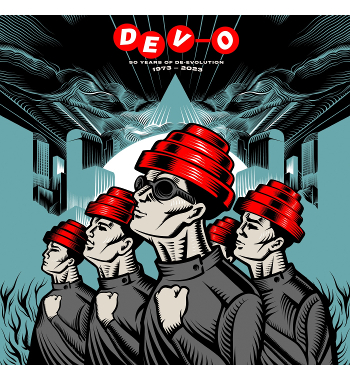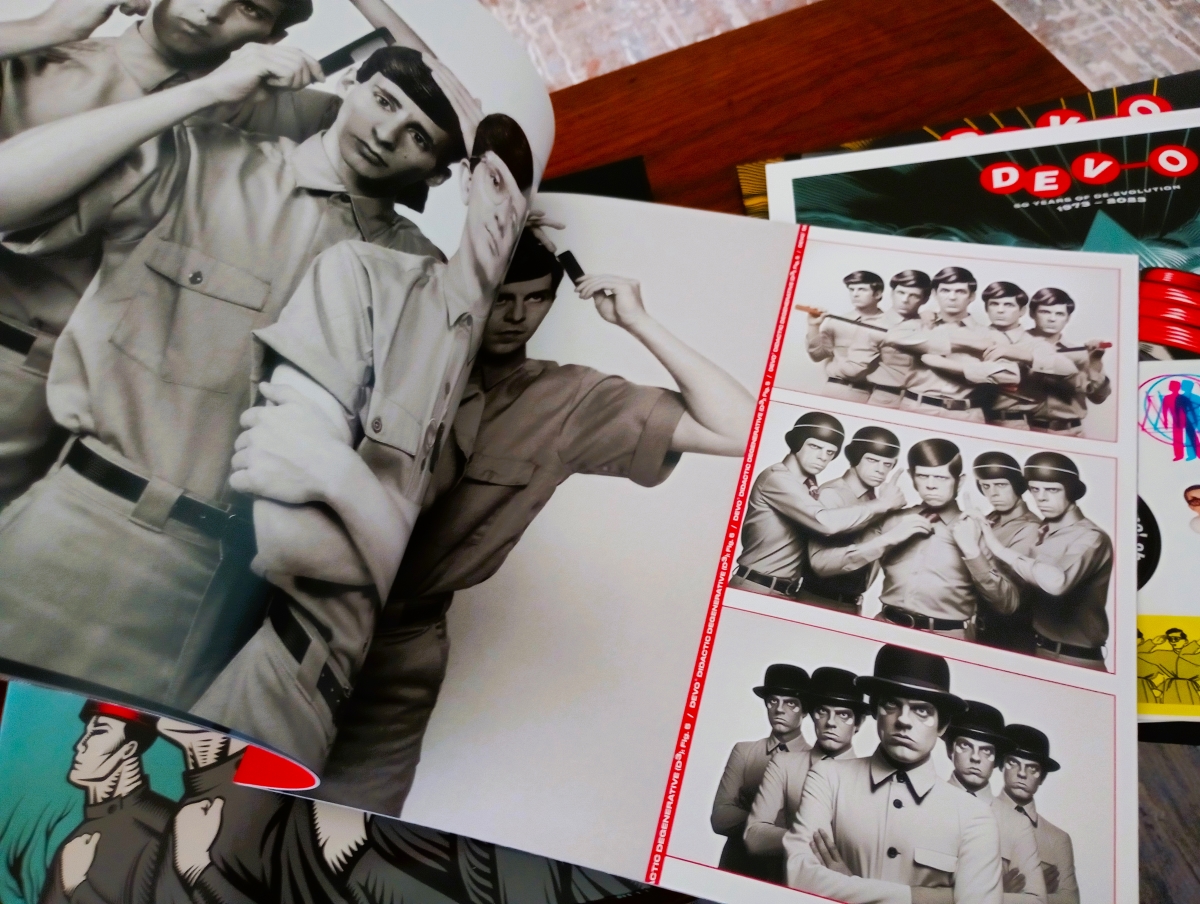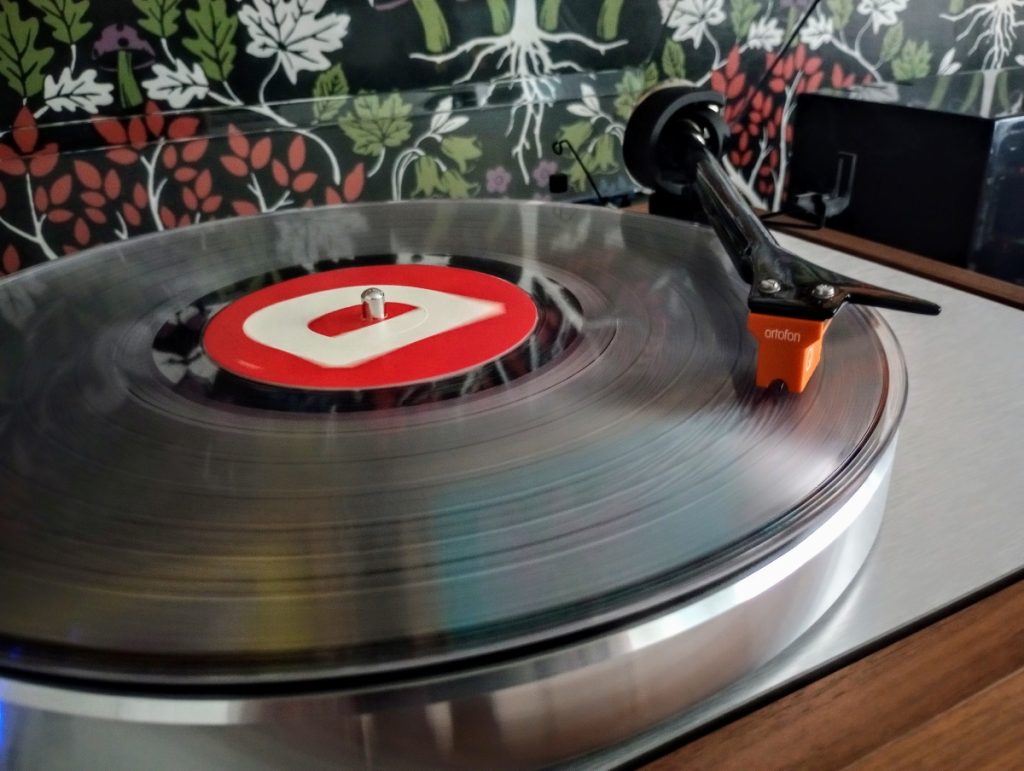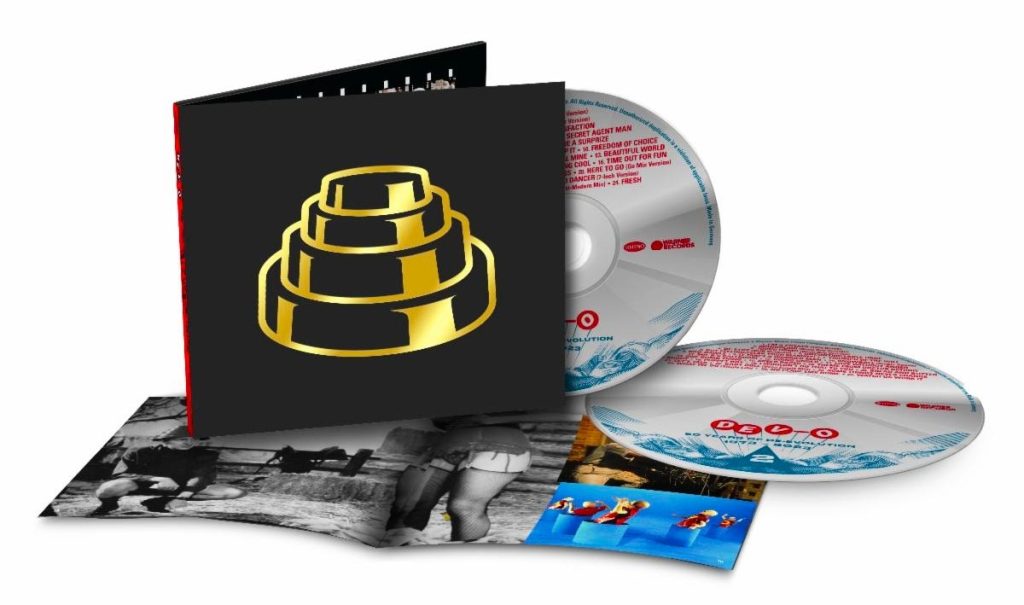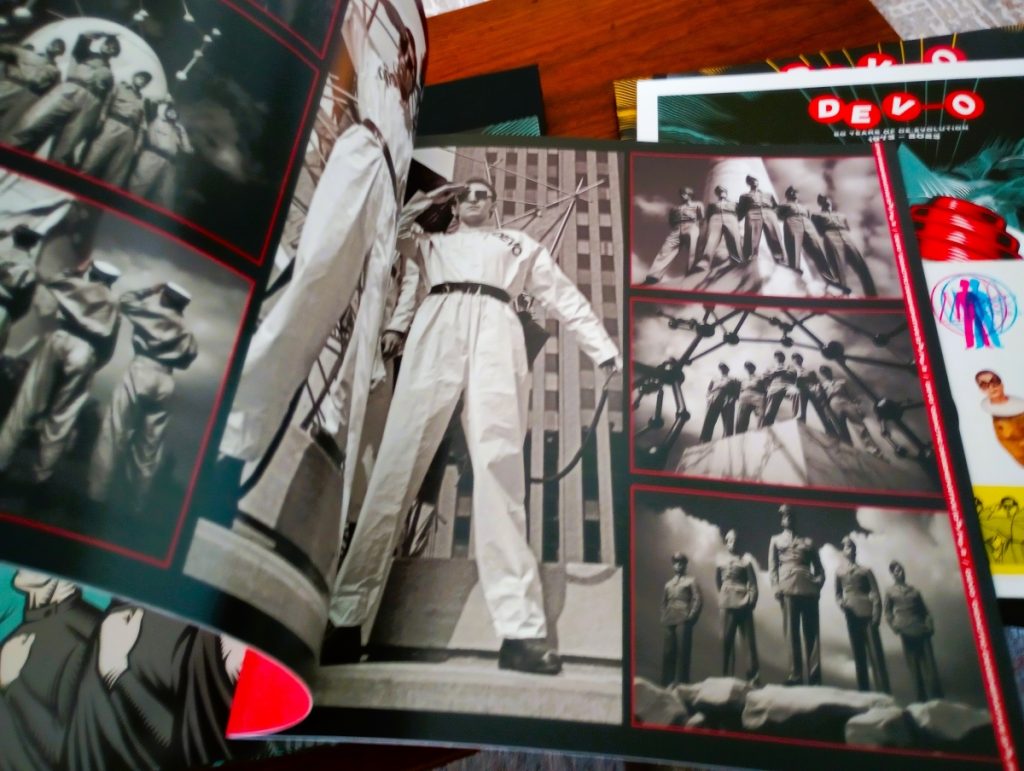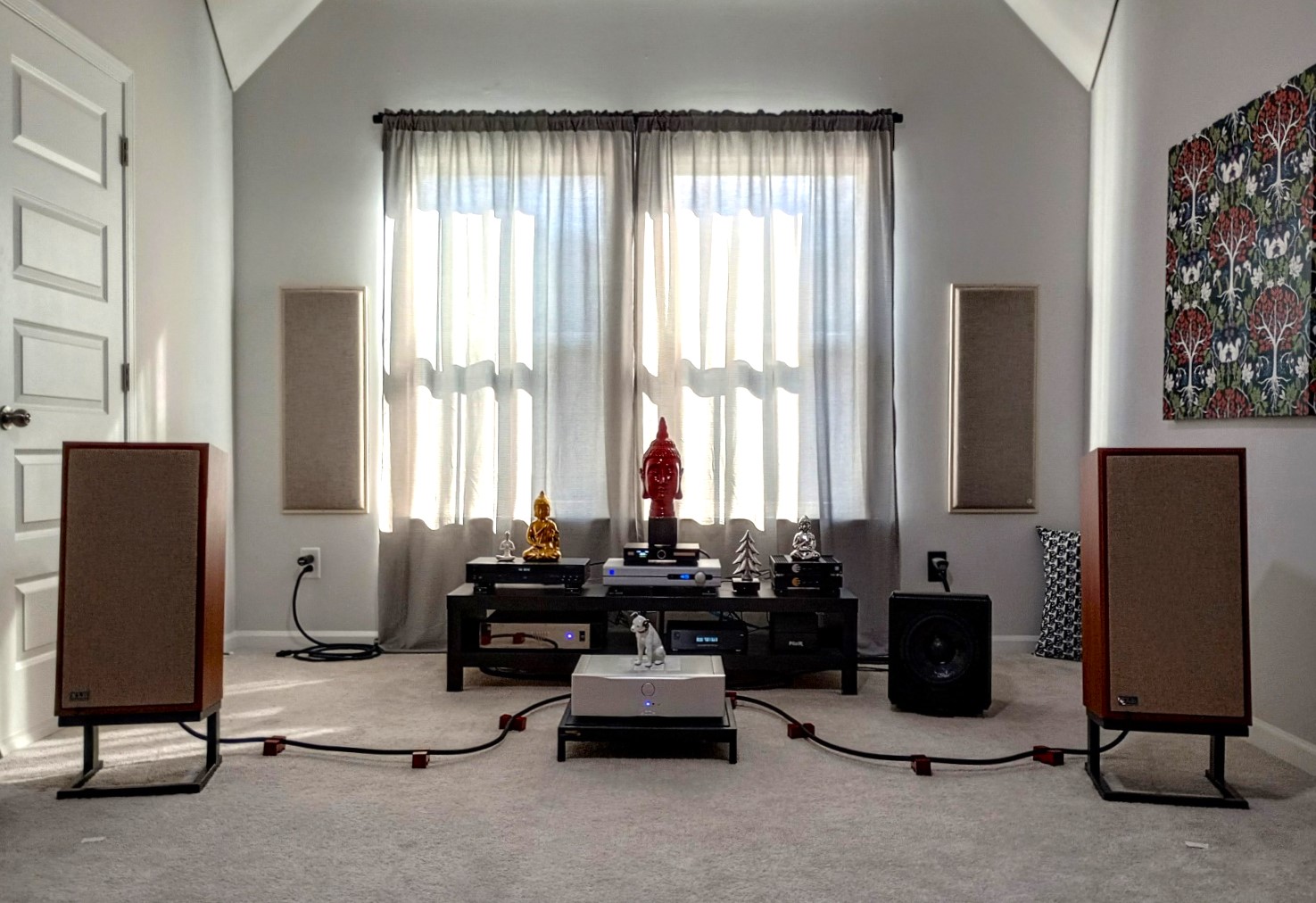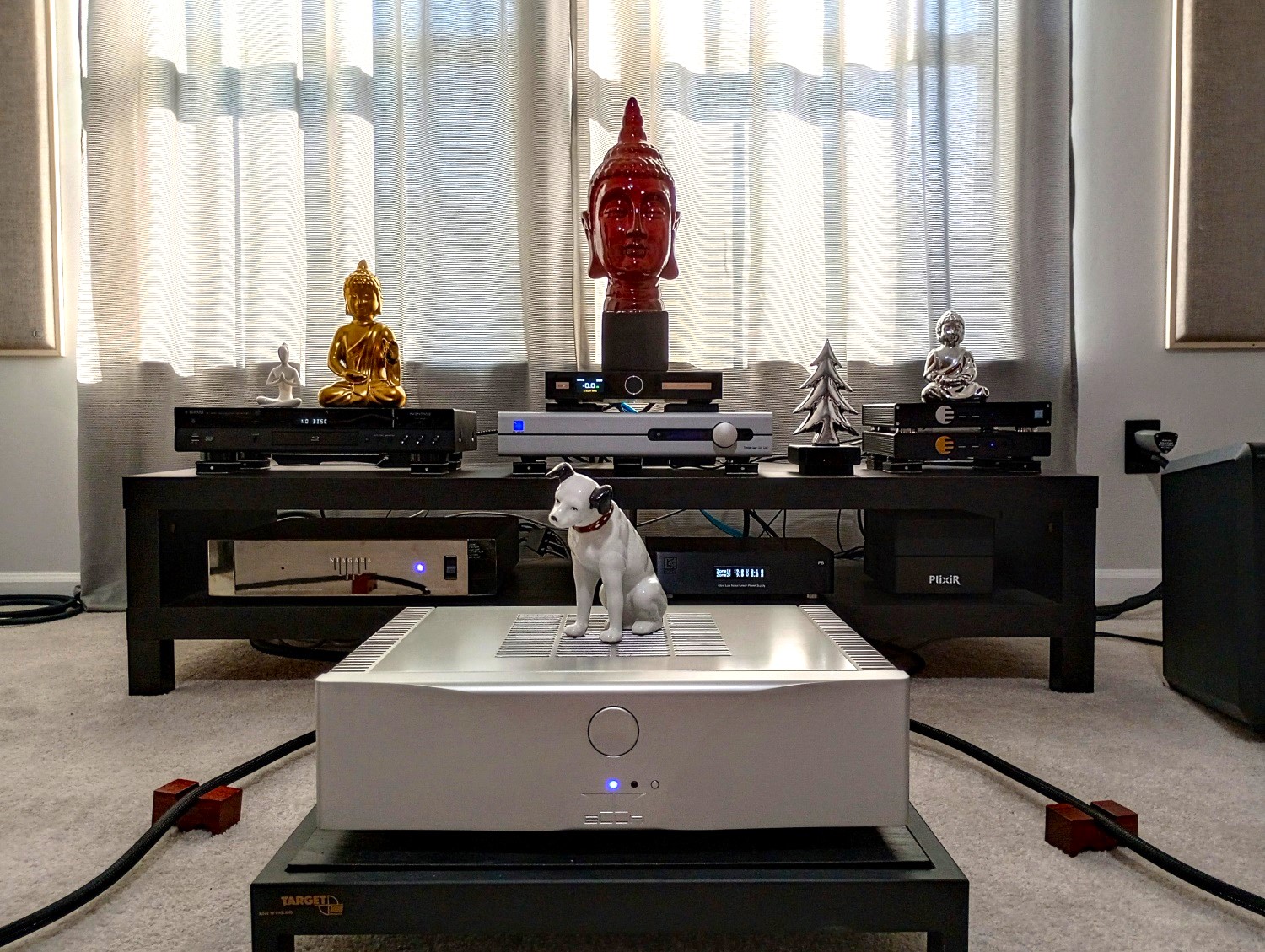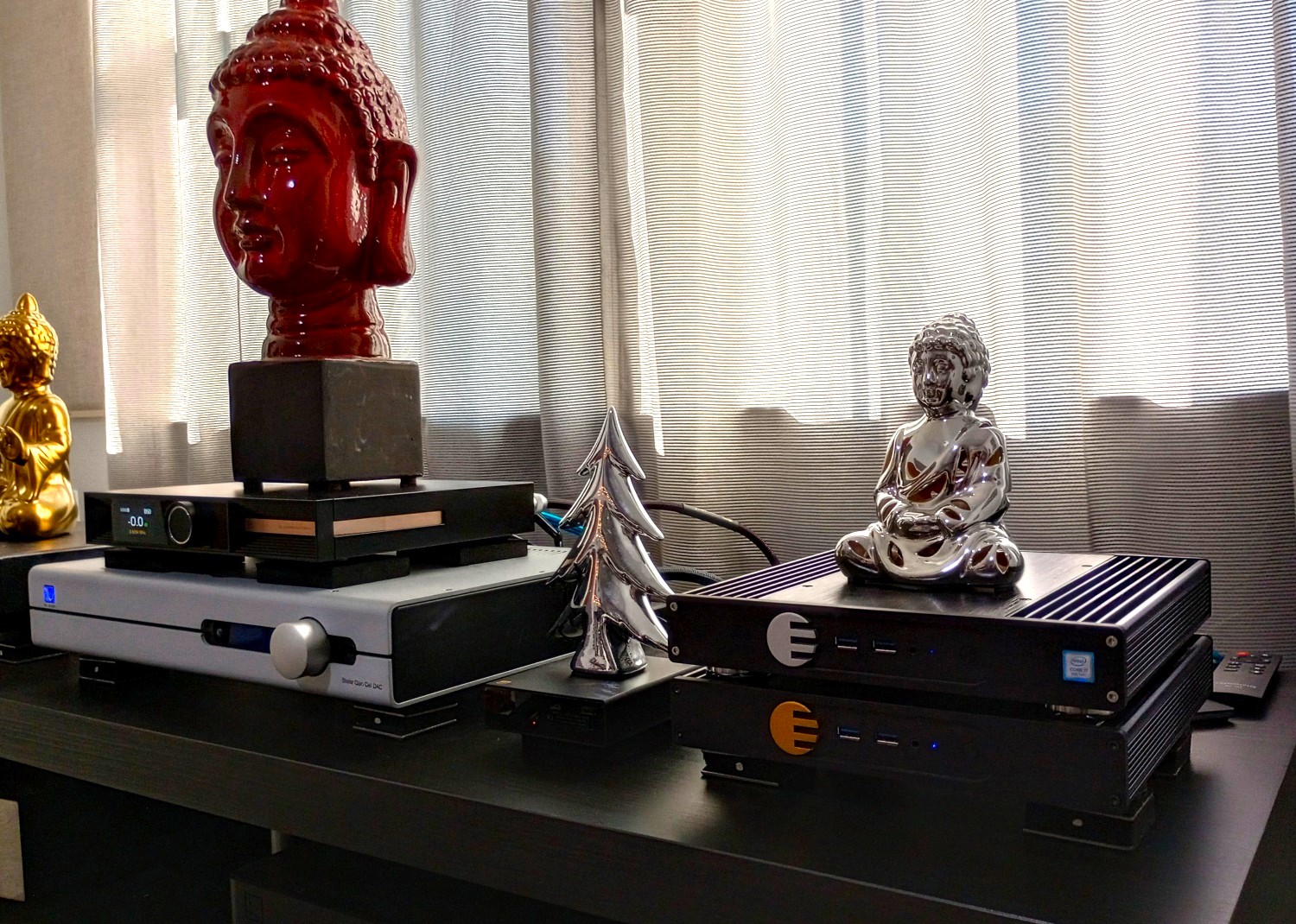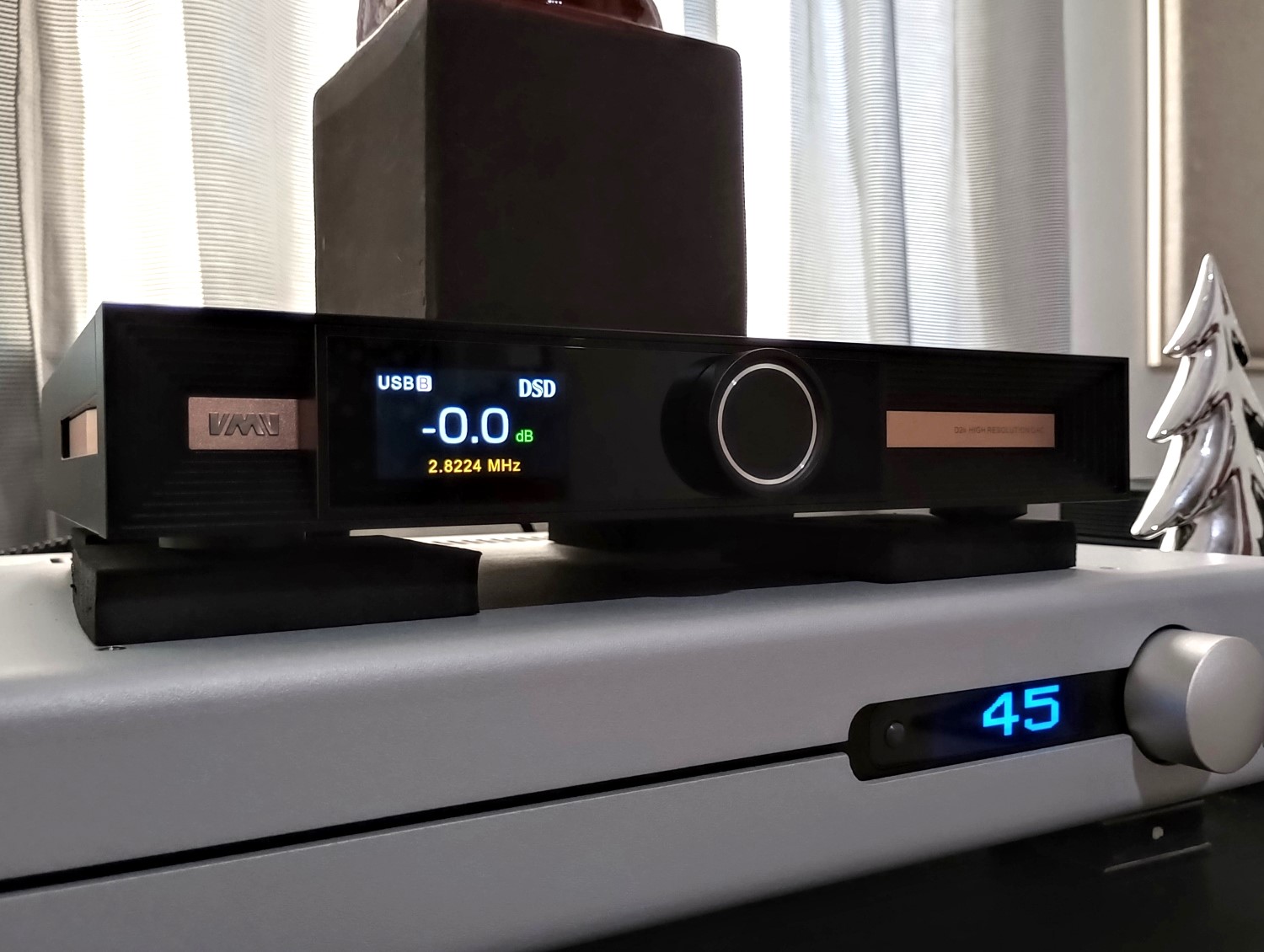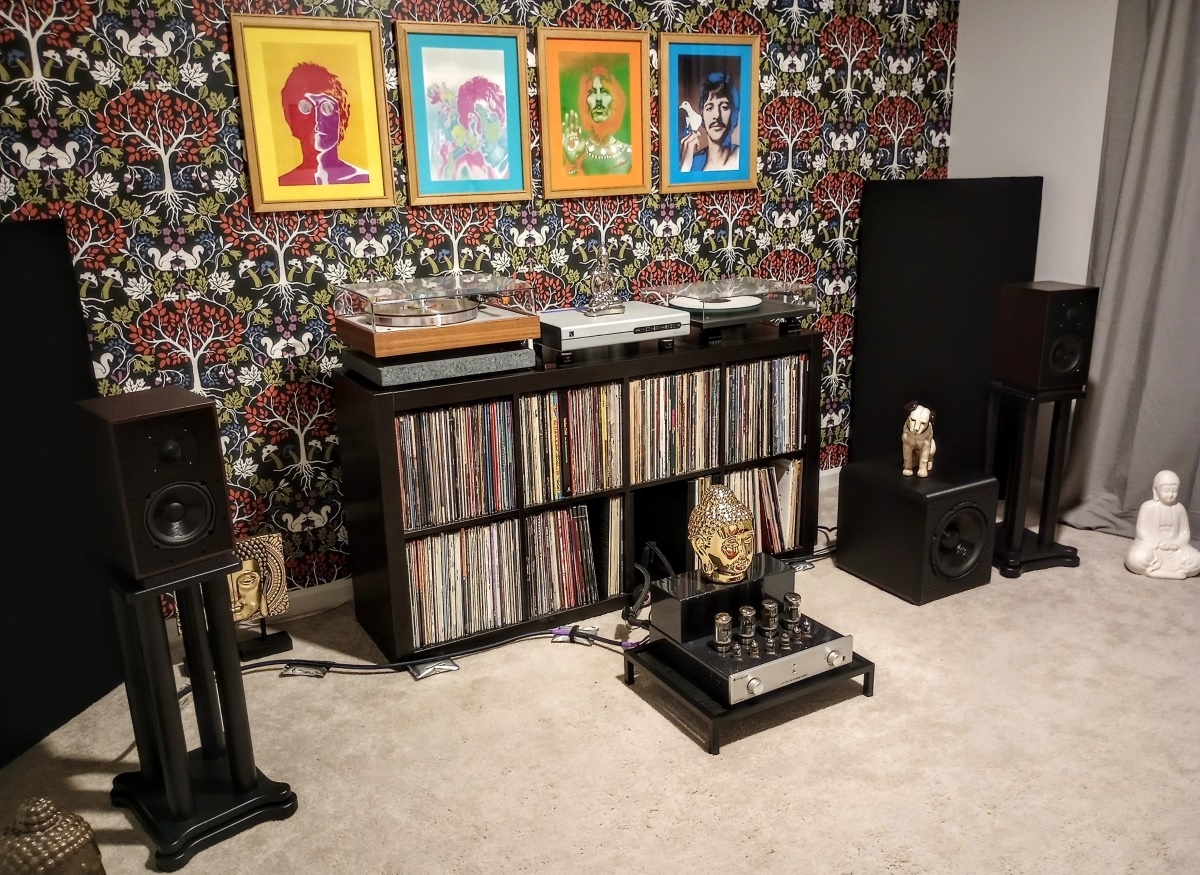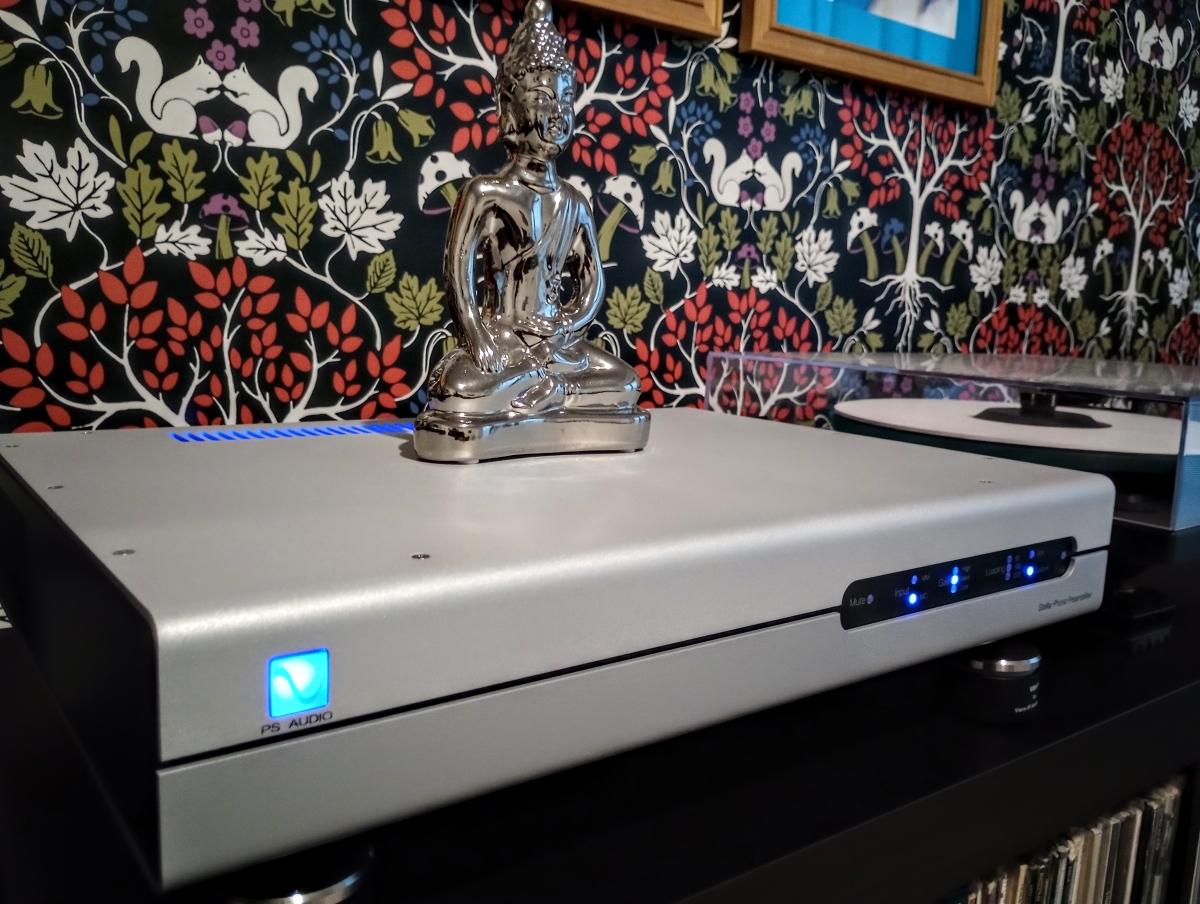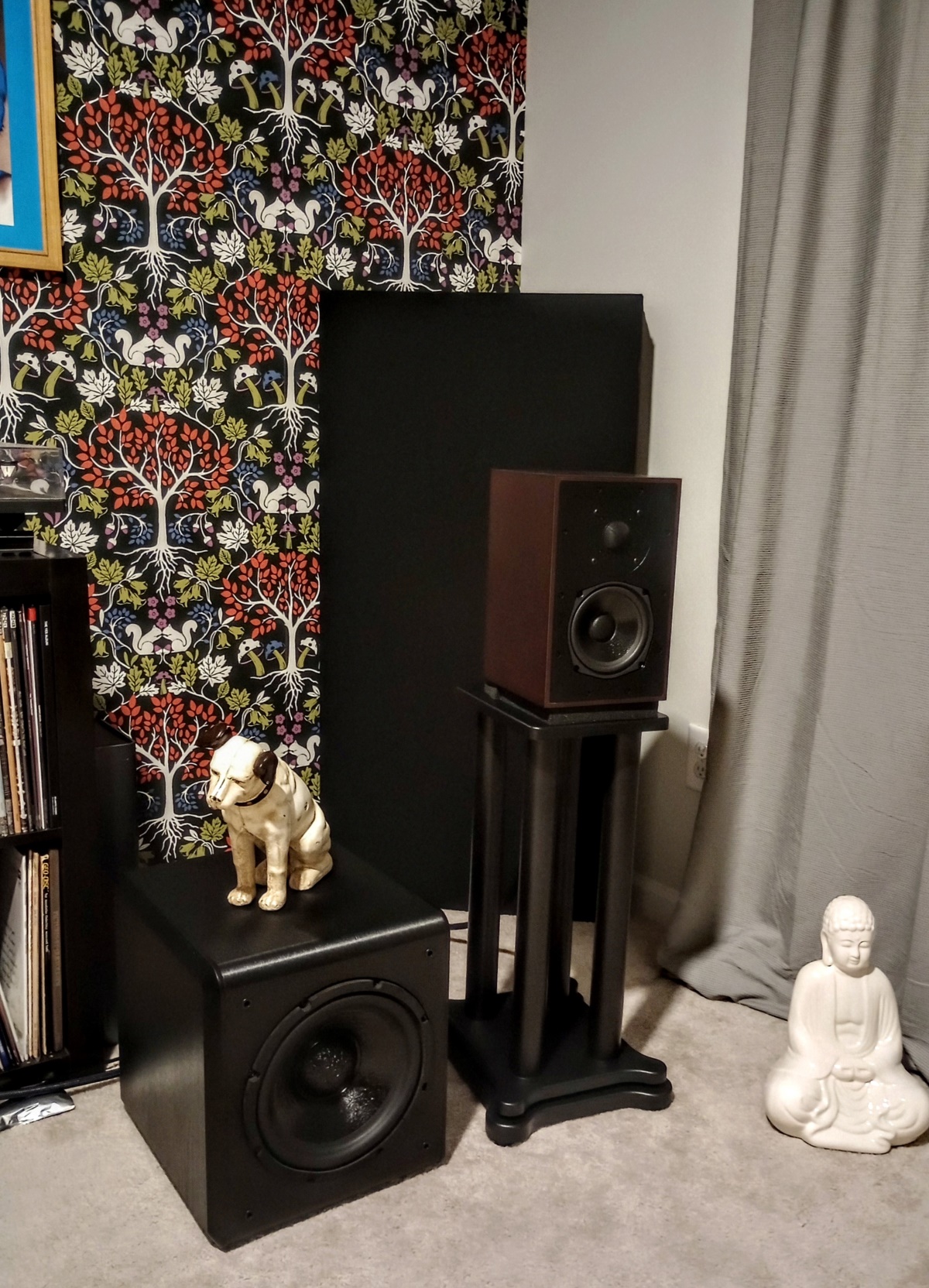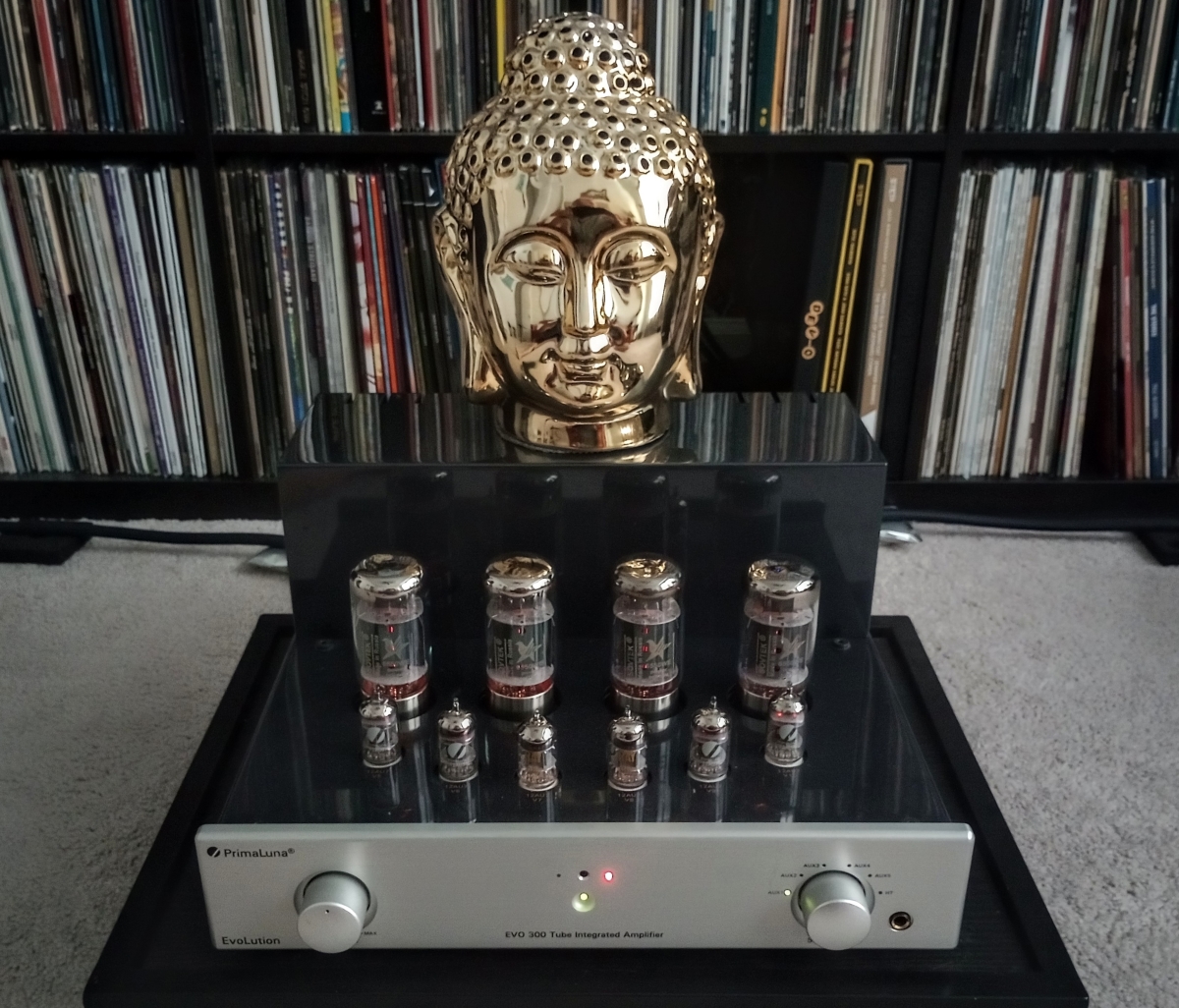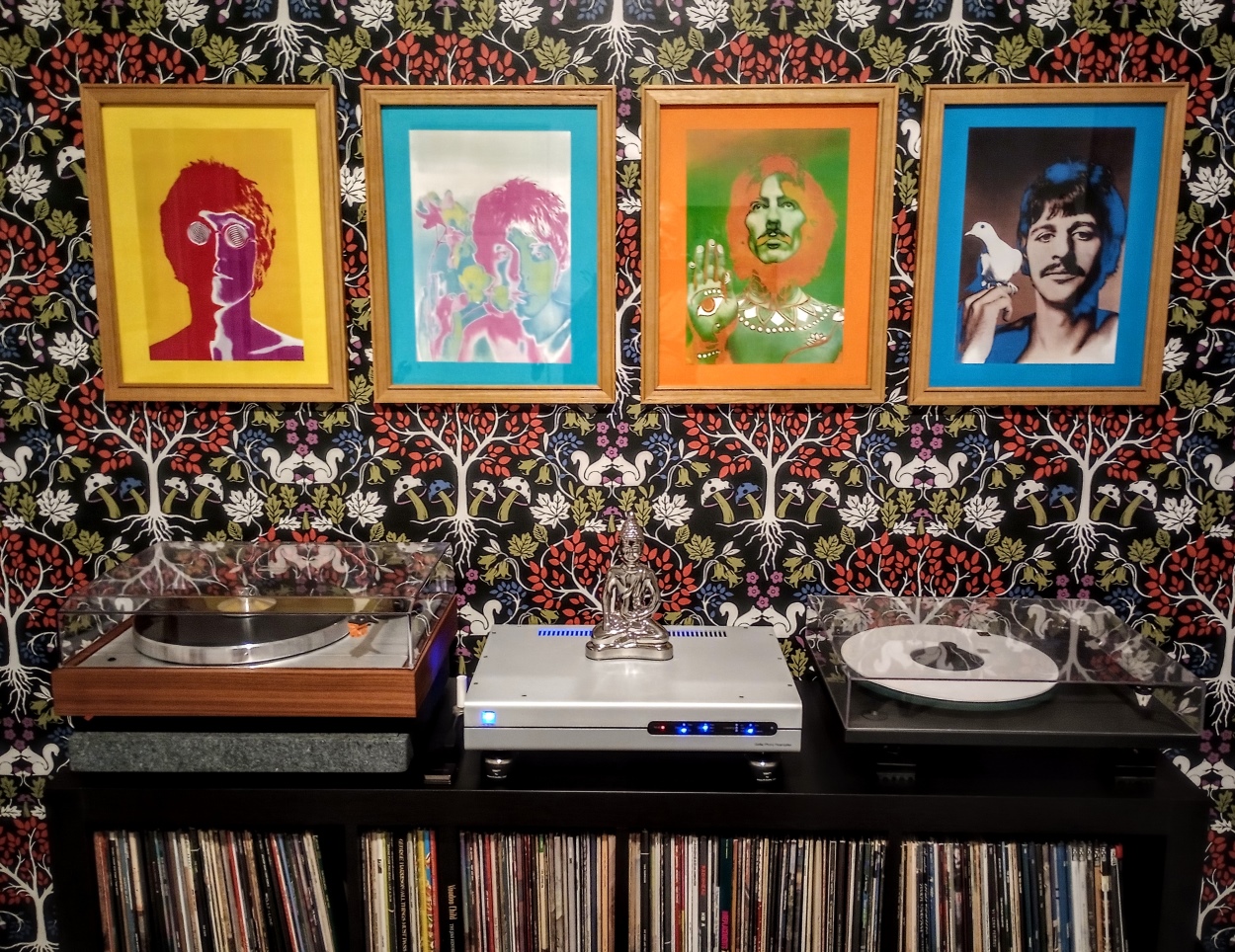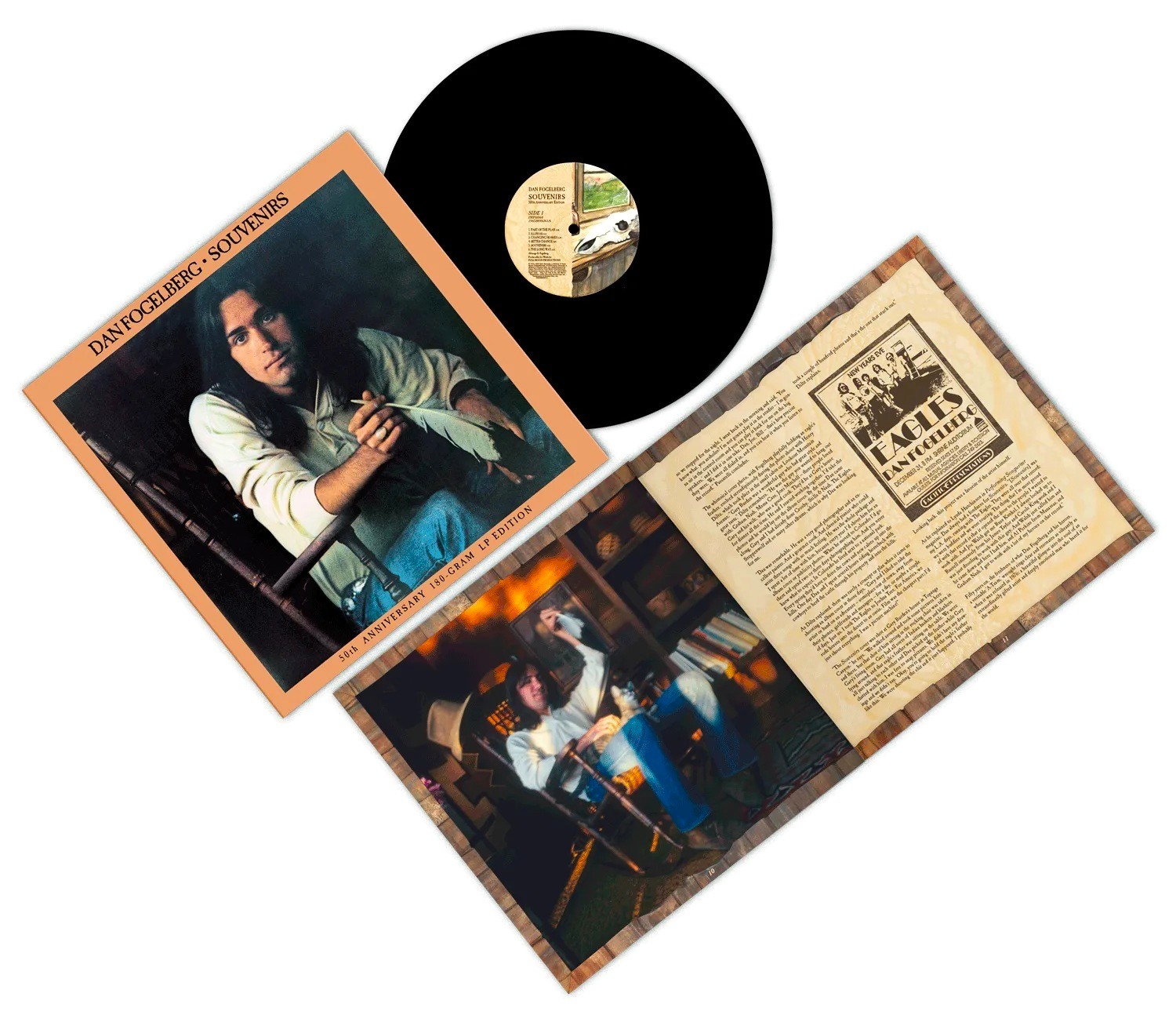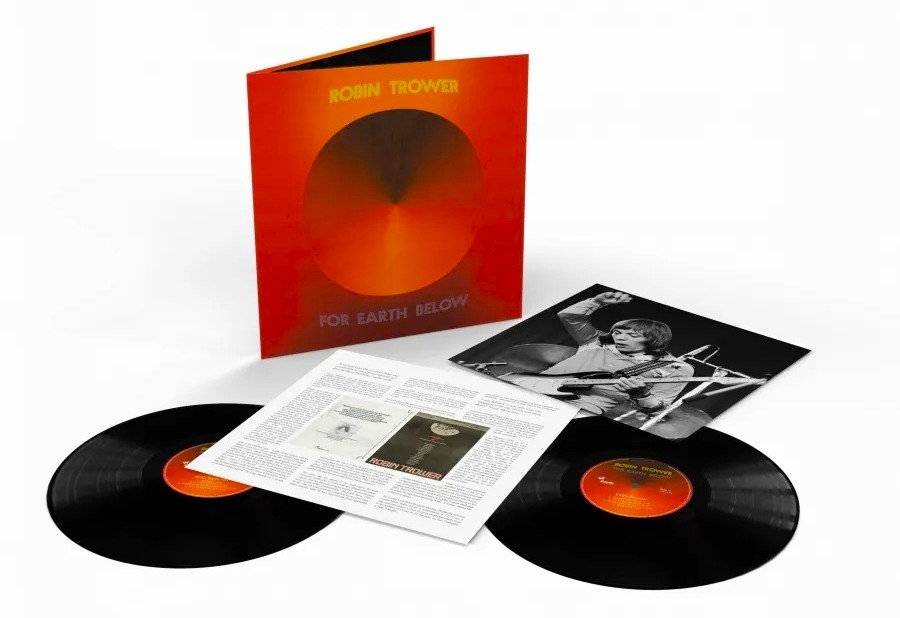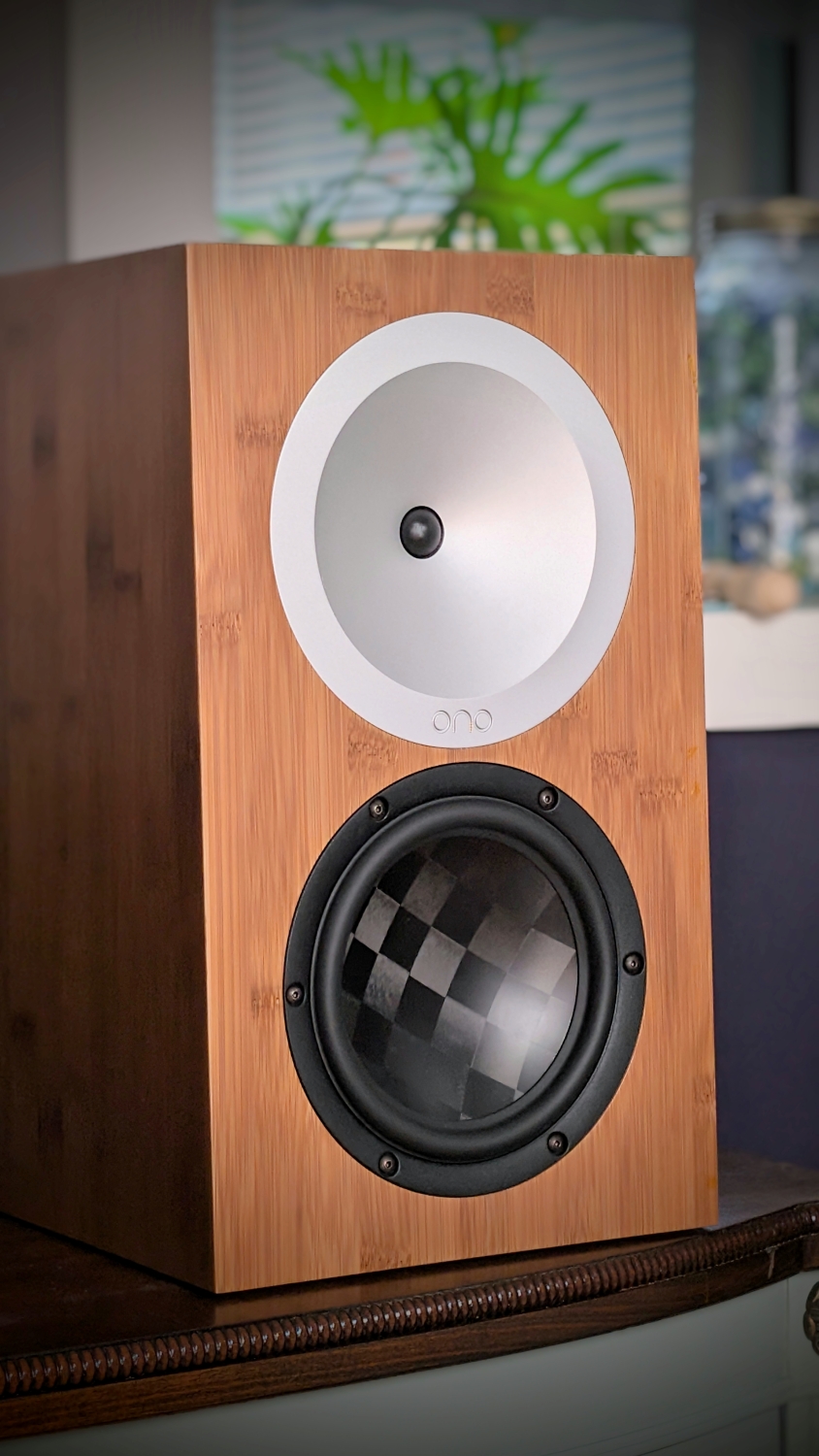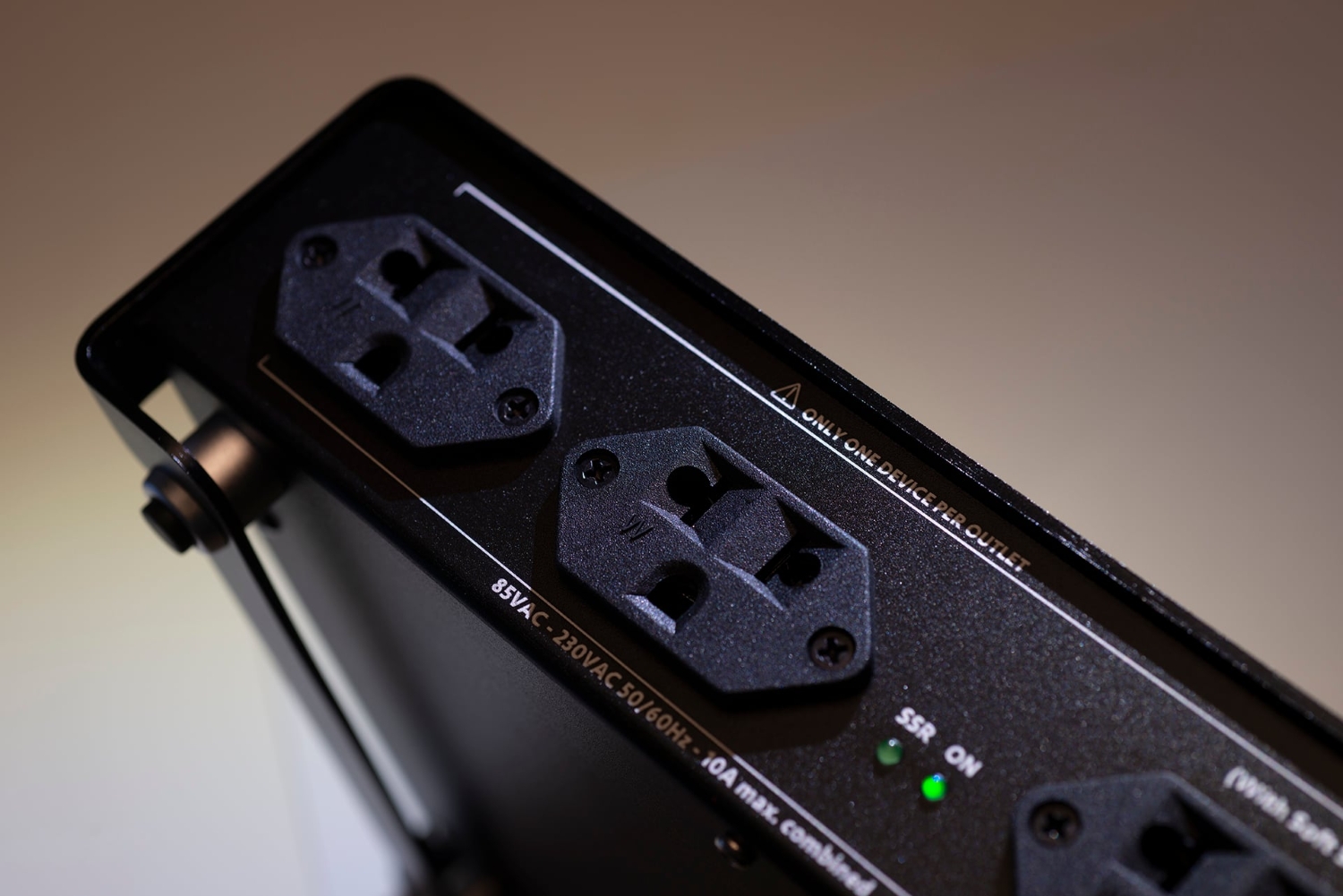Rhino Entertainment has just released Devo: 50 Years of De-Evolution (1973-2023), a box set that celebrates the legacy of the iconic band and their 50th anniversary as performers. Devo's genre-bending style of rock and roll bounded across a half-century of art punk, new wave, post-punk, and synth pop, and their nine studio albums never failed to excite and engage the band's followers. Devo: 50 Years of De-Evolution (1973-2023) is being issued in a variety of configurations including 2- and 4-LP sets, as well as a 2-compact disc set; you can order a copy in the format of your choice HERE. The set is also being released as CD-quality digital files for streaming on all the major online services.
My review copy arrived in the form of four crystal clear vinyl, 140 gram LPs; it's an individually-numbered edition that's strictly limited to 3000 copies worldwide and is exclusively available from Rhino.com. The four LPs are encased in a pair of Stoughton-style, tip-on, heavy double-gatefold album jackets with different color-combinations of the 50th anniversary album graphics. The two album jackets are absolutely beautiful, and in addition to the hip and stylish graphics, also feature high-gloss varnish effects that give the jackets a distinctive appearance. The album jackets are inserted into a heavy, tip-on style hardboard outer case that features a black satin texture finish; the front cover is embellished with a gold foil-stamped, stylized logo of Devo's iconic "energy dome" helmet. Devo's classic band logo is also gold foil-stamped on the box's spine. The back of the box features the track information for the four LPs, and is also given a stylish presentation; all the type elements feature a high-gloss varnish that's surrounded by a dull-varnished drop shadow effect. It makes for a visually striking outer case for the limited edition LP set.
In addition to the two double-gatefold album jackets, other goodies inserted into the LP box include a beautiful, perfect-bound, 28-page booklet that's printed on varnished cover-weight stock and includes an excellent essay about the band. Page 1 of the booklet also includes a QR code that you can scan with your smart phone to explore an interactive presentation about the band and Rhino's new box set. There's plenty of input throughout the booklet from the individual band members, rare photos and mementos from the band, and extensive track and recording information. There's also a full-sized, 3D, die-cut, wearable high-gloss varnished energy dome (it's incredibly cool!), along with an album-sized, suitable for framing print of the anniversary graphics on heavy stock. The box also includes a cool peel-n-stick sticker sheet with a variety of Devo logos and images of the band, as well as a Spud Boy automotive-style air freshener. It's definitely the complete album package!
The four LPs are individually encased in black paper inner sleeves that were lined with rice paper; that's always a nice touch, and helps ensure that the LPs remain dust- and scratch-free during playback. The crystal clear vinyl LPs are absolutely gorgeous, and each features a large, stylized letter (D, E, V, and O) emblazoned on its respective side one LP label. The side two labels for each LP feature the printed track information for both album sides. The four crystal clear LPs are among the most visually stunning records I've encountered in a very long while.
Some Background…
I saw Devo twice within a seven-month period of the August 1978 release of the band's debut album, Q: Are We Not Men? A: We Are Devo! Punk Rock was just beginning to get mainstream coverage in the US press with the arrival of the Sex Pistols earlier in the year, but it was definitely still on the fringe as far as my rural north-Georgia musical tastes were concerned. I mean, I came from a small town, Lula, Georgia, that had a population of 350(!); cows outnumbered people there 5-to-1. A college buddy, Randall Hulsey, called to tell me he had an extra ticket to the Devo concert at the Agora Ballroom in Atlanta, and to also tell me that I was going, and he wouldn't take no for an answer. This was in December; Atlanta's local WKLS FM (96 Rock) was playing Devo's remake of "Satisfaction" in regular rotation, and I'd seen them play the tune on Saturday Night Live (SNL) a couple of weeks before the Agora show, but that was the extent of my exposure to the band. On the hour-plus drive to Atlanta, Randall regaled me with a nearly non-stop diatribe as to how Devo was the future of music, and this night would be the greatest of our lives, without a doubt.
We arrived early for the show, and the line to get into the 250-seat Agora wound down the block; as we took our place in line, my gaze was unflinchingly drawn to a character in line in front of us. His brightly dyed orange spiked hair and Wayfarer sunglasses definitely stood out, and he was also wearing a London Fog trench coat that was unbuttoned to his navel. And it appeared that he had nothing on underneath the trench coat—and mind you, it was December, and there was definitely a chill in the air! As I looked more closely, I couldn't help but notice him constantly checking the time on a gold pocket watch, which he pulled from a side pocket of the trench coat. The watch was connected to a long gold chain that ran along the front of his coat, and was then attached to one of his nipples with a safety pin! That was my first, up-close-and-personal encounter with the punk-rock fashion aesthetic, and it's been indelibly etched on my brain ever since.
When the show started, the house lights dimmed and Devo appeared in their classic bright yellow jumpsuits and the kind of wrap-around sunglasses you get when your optometrist dilates your eyes, just as they'd appeared on SNL. They played for probably 45 minutes, then took a break, returning in silver suits with their equally classic red energy domes on, and played for about another 45 minutes. The audience stomped their feet and cheered briskly for what seemed like about ten minutes, when a single spotlight suddenly appeared onstage, highlighting Mark Mothersbaugh in his "Booji Boy" get up—I really thought at that point, I might actually lose my mind! Randall and I both looked at each other in a moment of complete "what the actual f@ck!" After a lengthy monologue about "de-evolution," the rest of the band hit the stage, energy domes still intact, and Devo played for perhaps another 45 minutes. When Randall had told me that this night would change our lives, he was completely correct, and I never looked at rock music the same way again. As soon as tickets went on sale for Devo's next show seven months later at the same venue, the two of us were among the first in line for tickets.
Devo: 50 Years of De-Evolution (1973-2023). (4) Crystal Clear Rhino LPs, $124.98 MSRP
Devo hailed from the Akron, Ohio area, which was a hotbed of music creativity in the late seventies into the eighties...and beyond. My new wife, Beth, was from the Akron area, and we spent a significant amount of time there in the eighties, soaking up the culture of the fertile Akron music scene that included not only Devo, but other cool bands like The Pretenders (at least, Chrissie Hynde was from Akron!) and Pere Ubu. Some of the members of Devo were students at nearby Kent State University, and several were present at on-campus war protests when members of the National Guard shot and killed student protestors. That event rocked the nation and galvanized the growing anti-Vietnam War movement. It also served as the flashpoint moment when the students who would eventually become Devo created the concept of De-evolution, which was in reaction to the utter chaos they'd just witnessed on campus. Beth was actually a freshman at Kent State while all this was going on—our personal connection to Devo and their ethos ran very deep!
Devo's classic lineup included Mark Mothersbaugh on lead and backing vocals, keyboards and guitars; Gerald Casale on lead and backing vocals, bass, bass synthesizer, and keyboards; Bob Mothersbaugh on lead and backing vocals and lead guitar; Bob Casale on rhythm guitar and backing vocals; and Alan Myers on drums. That core group covered the band's first six studio albums, including Q: Are We Not Men? A: We Are Devo! (1978), Duty Now for the Future (1979), Freedom of Choice (1980), New Traditionalists (1981), Oh No! It's Devo (1982), and Shout (1984). Most of the remixes, alternate versions, B-sides, demos, singles, and rarities collected for this box come from that period of the band, which was undeniably Devo's artistic and creative peak. The track listings here are not necessarily placed chronographically in the order of their release, though many are grouped together in a certain order of significance to the history of the band. And while selections are taken from the band's last three albums, most of those come from the band's final studio album, Something for Everybody (2010), which was considered a return to form for the band.
There's some overlap among the songs; for example, there are "Warner" versions of certain classic Devo tunes like "Mongoloid" and "Jocko Homo," as well as early recordings that are referred to as "Booji Boy" versions of the same songs. The differences are often not subtle, but both versions are musically compelling, and endlessly enjoyable. One can't help but notice how very many of Devo's songs were released as singles, and often as the complete album versions—of course, Devo songs were typically concise and to the point, and rarely ever lengthy opuses. Singles abound in the collection, such as their original version of "Satisfaction," "Secret Agent Man," "Uncontrollable Urge," and "What We Do." And there are rare examples where the released single didn't match the album version; for example, 1980's "Snowball" from Freedom of Choice. Where the remixed single was so well crafted, it's just as entertaining as the album version.
Devo frequently recorded tunes for movie soundtracks throughout the eighties. The compilation features six original songs or covers that appeared in motion pictures, including their cover of the classic "Working In The Coal Mine" from 1981's Heavy Metal—I saw the film in a theater, and bought the LP album afterwards solely to get my hands on Devo's campy take on the tune. Other examples are "It Takes A Worried Man" from 1982's Human Highway, "I Wouldn't Do That to You" from the 1987's Happy Hour, and "The Theme from Doctor Detroit" from the 1983 movie Doctor Detroit, where Devo's song was probably the most memorable bit from an otherwise forgettable film. The song selection here includes the track "One Dumb Thing" from the CD-ROM PC video game Interstate '82, as well as non-album tracks like their earliest demo "I'm A Potato." "Be Stiff" is from the German Conny Plank recordings that ended up on the British Stiff label EP, B-Stiff, along with "Soo-Bawlz," which was another UK single from 1978. This box covers Devo's plethora of hits, but also touches on many of the non-album, B-sides, demos, and other rarities that will make it especially desirable to die-hard fans of the band.
This New Box from Rhino Presents Devo in Perhaps Their Best Sound Ever!
Click on my name in the header above, and you can see the selection of equipment I used to evaluate Devo: 50 Years of De-Evolution (1973-2023). For the LP segment of my listening sessions, I used my all-analog system that features the PrimaLuna EVO 300 tube integrated amplifier, playing through the KLH Model Five loudspeakers. The turntable was my ProJect Classic EVO that's fitted with an Ortofon Quintet Bronze moving coil cartridge. Listening through tubes and classic acoustic-suspension loudspeakers gave my listening sessions an appropriately vintage but also very modern quality of sound, which suited Devo's primal but sophisticated synth pop/rock perfectly, and gave the music the punch it needed.
The LP's are marked "Made in the USA," but I had no information as to where they were pressed or by whom, but the crystal clear vinyl albums were absolutely beautiful to behold. All four LPs were perfectly flat, with glossy and pristine surfaces that were exceptionally quiet during playback, and displayed little or no groove noise. I have to admit, I was a bit surprised by this; while clear vinyl should in theory sound identical (or even superior) to black vinyl, my experience with some of the recent Atlantic 75 (also from Rhino on crystal clear vinyl) LP titles has proved otherwise. Those LPs sound great musically, but are a mixed bag in terms of how noisy some of the crystal clear vinyl pressings are. The listening experience in this case, however, was always exceptional through my all-analog tube system, and the sound quality of the LPs were superb.
Since I was also supplied with CD-quality digital files for the CD version and for streaming, I also took a listen on my digital system, which features my Euphony server and streaming system, that plays into a Gustard X26 Pro DAC that's also connected to a Gustard C18 external constant temperature clock unit. That plays into my PS Audio Stellar balanced preamplifier, which then fed a Naiu Labs Ella power amplifier that sends the signal to my Magneplanar LRS+ loudspeakers and a REL subwoofer. I took the supplied WAV files and converted them to uncompressed FLACs, then massaged the metadata and loaded them onto my music server. Through a fairly high-end digital music system, the tracks from Devo: 50 Years of De-Evolution (1973-2023) were both superbly musical and impressively dynamic, and in many ways, the sonic equals of the excellent LPs.
Conclusion
Devo fans will find Devo: 50 Years of De-Evolution (1973-2023) to be absolutely indispensable. Once I started spinning the LPs, I had a hard time extracting myself from my listening sessions, the grooves were so totally irresistible! And especially when you take into consideration that the box collects so very many remixes, alternate versions, B-sides, demos, singles, and rarities that are either difficult to find in one place, or have perhaps never seen the light of day. The campy extras and informative and entertaining essays included in the box add exponentially to the level of fun presented here, but also help highlight the band's historical significance. And with the exceptionally sterling sound quality of the available formats—whether you choose the multi-LP or CD sets, or simply choose to digitally stream the songs with an online service, you won't be disappointed. Devo: 50 Years of De-Evolution (1973-2023) comes very highly recommended!
Rhino Entertainment
All images provided by Rhino Entertainment, Shore Fire Media, and the author





